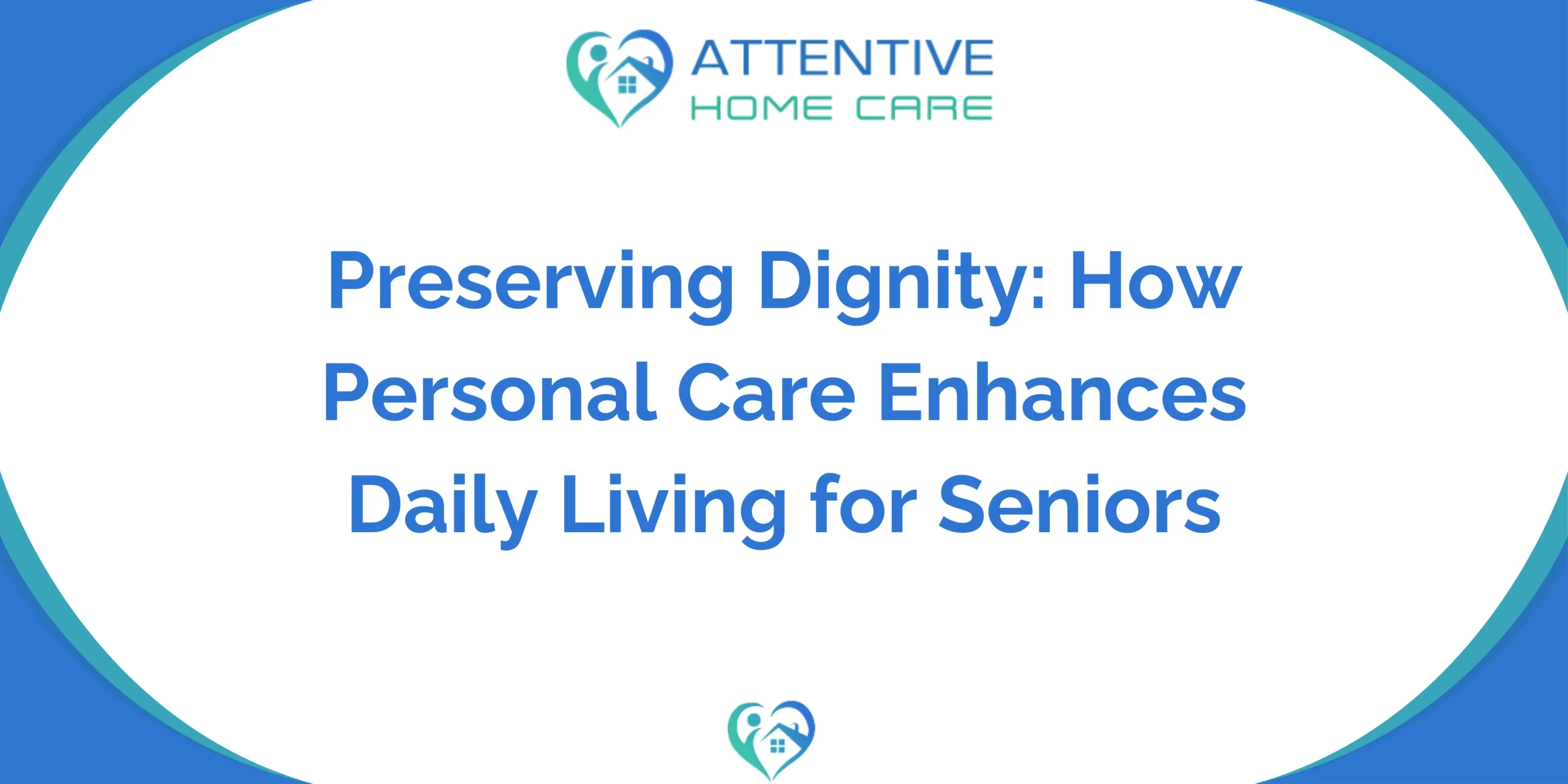As your loved one ages, small daily tasks can become big emotional challenges. The fear of losing control of bathing, dressing, even asking for help often leads to withdrawal, shame, or accidents. But with the right care, aging doesn’t have to mean losing dignity.
Personal care for seniors is more than assistance. It’s a pathway to preserve identity, confidence, and independence day by day, moment by moment.
The Role of Dignity in Healthy Aging
Why emotional well-being matters as much as physical support
Dignity is deeply tied to how seniors feel about themselves. When they can no longer manage basic hygiene, brush their hair, or wear clean clothes, their self-worth often declines. Without compassionate support, these struggles can lead to depression or isolation.
A caregiver’s job isn’t just to help. It’s to honor the individual. Respect, patience, and privacy are essential to protecting emotional wellness while addressing physical needs.
Personal Care Essentials: What’s Included?
Everyday support that restores confidence and comfort
In-home personal care typically includes:
- Bathing and grooming
- Dressing assistance
- Oral care
- Toileting and continence care
- Meal prep and feeding support
- Walking, transferring, and mobility help
But more importantly, it’s about how these tasks are handled. At Attentive Home Care, every caregiver is trained to provide gentle, non-judgmental help that promotes a sense of control and comfort.
Ways Personal Care Supports Independence
Giving seniors more control over their lives
Some think accepting personal care means giving up independence. But the truth is, it often gives it back.
With just the right level of assistance, your loved one can:
- Stay safe while living at home
- Maintain routines they enjoy
- Avoid falls or hospital visits
- Feel less like a burden to family
Rather than doing everything for them, caregivers support what the senior can still do, at their pace, in their way.
Why Daily Routines Rebuild Purpose
Consistency, comfort, and connection through everyday habits
Structure gives life meaning. Without it, seniors may lose interest in basic self-care, which can trigger other health issues. That’s where daily support makes a difference.
Caregivers help reestablish routines such as:
- Morning grooming and getting dressed
- Scheduled meals and medication reminders
- Safe movement around the home
- Staying clean and feeling presentable
Even something as simple as choosing an outfit or brushing one’s hair can feel empowering again.
Emotional Benefits Behind Professional Assistance
Privacy, dignity, and peace of mind for your loved one
It’s tough for a parent to ask their child for help with bathing or toileting. That emotional discomfort can lead to resistance or strained relationships.
Professional caregivers eliminate this tension by:
- Creating a safe, neutral space for care
- Respecting modesty and routine preferences
- Understanding age-related concerns with empathy
And when needs evolve, they’re trained to coordinate with skilled nursing or care management teams for a seamless experience.
What Families Often See After Starting Care
Real outcomes that impact quality of life
Families frequently notice big improvements, such as:
- “Dad’s eating better and smiling again.”
- “Mom’s more alert and talkative.”
- “We can enjoy our visits without stress now.”
Personal care isn’t just about hygiene. It changes the atmosphere of the whole home. You’ll spend less time worrying and more time connecting.
When Is It Time to Consider Personal Care?
Signs your loved one might need extra support
Look for these common indicators:
- Missed showers, dental care, or grooming
- Unwashed clothes or cluttered spaces
- Bathroom accidents or skin issues
- Hesitancy to leave the house due to appearance
- Recent falls or unsteady walking
If you’ve noticed even one of these changes, explore how in-home personal care can reduce risks and restore normalcy.
Our team is here to guide you through your options.
Combining Companion Care for Holistic Support
Why pairing services leads to better outcomes
Personal care is essential, but when combined with companion care, seniors receive:
- Emotional connection and conversation
- Mental stimulation through games or walks
- Help staying engaged in community or hobbies
- A better chance at combating loneliness
Together, these services form a well-rounded care plan that keeps both body and mind active.
What to Look for in a Caregiver
Qualities that make support feel personal, not clinical
Choosing the right caregiver is about more than credentials. Trust, warmth, and communication matter just as much.
We recommend looking for:
- Familiarity with senior preferences
- A consistent caregiver whenever possible
- Experience with mobility and memory care
- Respectful, empathetic bedside manner
- Clear, regular communication with families
These qualities transform routine care into dignified support.
Time to Restore Dignity at Home
Support your loved one without taking away their voice
Your loved one deserves more than safety. They deserve dignity. Personal care makes it possible to live at home with support that feels respectful, familiar, and empowering.
Get personalized personal care support now →
Want to talk it through? Call us for a conversation. We’re ready to listen.
Frequently Asked Questions
Can personal and companion care be used together?
Absolutely. Combining the two often results in improved mood, cognitive function, and daily engagement. Each fills different gaps in a senior’s life.
How does in-home personal care promote long-term independence?
By helping only when needed, caregivers encourage seniors to do what they can safely and with confidence, reducing hospital visits and promoting daily activity.
Why do families prefer professional help over doing it themselves?
Privacy, training, and emotional neutrality make professional caregivers a better fit for personal tasks, especially when dignity is involved.

